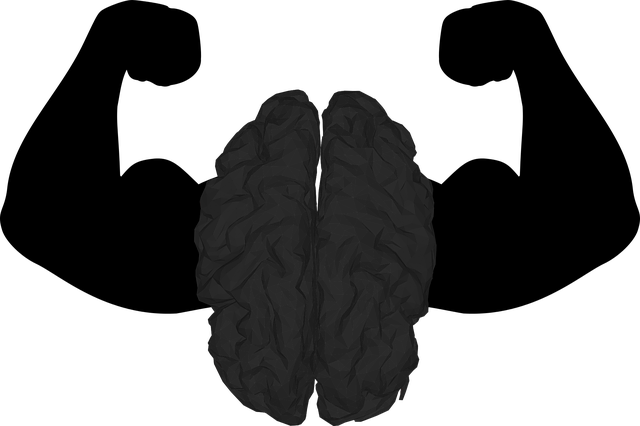Aurora Relationship Issues Therapy (ARIT) plays a pivotal role in gathering and analyzing mental health data through diverse methods, including self-reporting, clinical observations, and client narratives. By examining emotional states, behaviors, and social dynamics, ARIT's experts identify patterns and red flags associated with various conditions. This approach incorporates self-esteem improvements, risk assessments, and societal influences, enabling personalized interventions for effective depression prevention. Advanced analytics tools, combined with qualitative data from meditation practices, enrich understanding of mental health trends, guiding policy decisions and resource allocation for enhanced community well-being.
“Mental health data analysis is a powerful tool for understanding complex human experiences. This article delves into the critical process of interpreting mental health data, highlighting the role of innovative approaches like Aurora Relationship Issues Therapy. We explore how structured data collection methods enhance therapy sessions, leading to significant insights. By analyzing trends and patterns in mental health statistics, practitioners can make informed decisions, ultimately improving treatment outcomes. Discover practical applications that showcase the transformative potential of data-driven practices within therapeutic settings.”
- Understanding Mental Health Data: A Comprehensive Overview
- The Role of Aurora Relationship Issues Therapy in Data Collection
- Analyzing and Interpreting Therapy Session Insights
- Identifying Patterns and Trends in Mental Health Statistics
- Practical Applications: Enhancing Treatment Outcomes through Data-Driven Decisions
Understanding Mental Health Data: A Comprehensive Overview

Understanding mental health data is a multifaceted process that involves meticulously analyzing various factors contributing to an individual’s psychological well-being. This includes assessing emotional states, behaviors, and social dynamics, often revealed through self-reporting, clinical observations, and interaction with mental health professionals like therapists at Aurora Relationship Issues Therapy. By delving into these data points, experts can identify trends, patterns, and red flags that underscore the nuances of mental health conditions, from mild anxiety to severe depression.
Comprehensive data analysis goes beyond mere numbers, encompassing qualitative insights gleaned from client narratives, therapy sessions, and assessment tools. Factors such as self-esteem improvement, risk assessment for mental health professionals, and even societal influences play significant roles in shaping an individual’s mental health landscape. Understanding these interconnections allows practitioners to tailor interventions, ensuring personalized care that addresses the root causes of distress, ultimately paving the way for effective depression prevention strategies.
The Role of Aurora Relationship Issues Therapy in Data Collection

Aurora Relationship Issues Therapy (ARIT) plays a pivotal role in mental health data collection by fostering an environment where individuals can openly discuss and explore their interpersonal challenges. This therapeutic approach encourages clients to engage in Self-Awareness Exercises, which involve introspection and reflection on personal relationships, emotions, and behaviors. Through these exercises, ARIT helps individuals gain valuable insights into their mental health status and identify patterns that may be contributing to or exacerbating their issues.
In addition to enhancing self-perception, ARIT incorporates Mindfulness Meditation techniques as a core component of its program design. These practices enable participants to cultivate present-moment awareness, thereby improving their ability to manage stress, regulate emotions, and navigate complex interpersonal dynamics. The data collected from these meditative practices offers rich qualitative and quantitative information, contributing significantly to the comprehensive understanding of mental health trends within the population served by ARIT.
Analyzing and Interpreting Therapy Session Insights

Analyzing therapy session insights is a crucial step in understanding and addressing mental health concerns. Through systematic analysis, healthcare providers can gain valuable insights into a client’s emotional journey and progress over time. This process involves reviewing notes, recordings, or digital platforms where sessions are documented. For instance, with Aurora Relationship Issues Therapy, therapists can identify recurring themes in discussions, assess the effectiveness of interventions, and track changes in the client’s emotional regulation abilities. By analyzing these insights, providers can tailor their approach, ensuring that each session aligns with the client’s unique needs.
The integration of mental wellness journaling exercises within therapy sessions further enhances this analysis. Clients’ written reflections provide a deeper understanding of their internal experiences and emotions. Healthcare provider cultural competency training also plays a role here, as it equips professionals to interpret these insights through a lens of cultural sensitivity. This comprehensive approach ensures that emotional regulation guidance is not only effective but also respectful of the client’s background and identity.
Identifying Patterns and Trends in Mental Health Statistics

In the realm of mental health data analysis, identifying patterns and trends within statistics is akin to unearthing a symphony from a labyrinthine enigma. By delving into vast datasets, professionals can uncover subtle connections and recurring themes that shed light on prevalent mental health issues within communities. This process involves meticulously sifting through numbers, searching for anomalies and correlations that may indicate specific challenges, such as the rising incidence of Aurora Relationship Issues Therapy requests in urban areas, suggesting an urgent need for targeted interventions.
Through advanced analytics techniques, including statistical modeling and machine learning algorithms, healthcare researchers can predict potential mental health crises, inform policy decisions like the implementation of a Community Outreach Program, and advocate for evidence-based practices that promote Mental Wellness. By understanding these trends, stakeholders can strategically allocate resources, develop tailored programs, and ultimately enhance the accessibility and effectiveness of mental health services.
Practical Applications: Enhancing Treatment Outcomes through Data-Driven Decisions

In today’s digital age, mental health data analysis plays a pivotal role in enhancing treatment outcomes and personalizing therapy sessions. By utilizing advanced analytics techniques, professionals can gain valuable insights from patient records, identifying patterns and trends that may otherwise remain hidden. This data-driven approach enables therapists to make informed decisions, tailoring their strategies to individual needs. For instance, at Aurora Relationship Issues Therapy, analysts might uncover specific triggers for anxiety or depression within relationships, leading to more effective coping skills development.
The integration of data analysis also facilitates the creation and implementation of Empathy Building Strategies. By understanding the collective experiences and challenges faced by patients, therapists can design interventions that foster a deeper sense of connection and trust. Moreover, the insights derived from data can guide Public Awareness Campaigns Development, ensuring targeted messaging that resonates with diverse populations. Ultimately, this analytical perspective not only improves individual treatment but also contributes to broader community well-being.
Mental health data analysis, powered by innovative approaches like those employed by Aurora Relationship Issues Therapy, holds immense potential in enhancing therapeutic outcomes. By meticulously analyzing session insights and identifying patterns within mental health statistics, practitioners can make informed, data-driven decisions that personalize treatment plans. This strategic approach not only improves patient care but also contributes to the broader understanding of mental wellness, ultimately fostering a more effective and accessible mental health support system.








